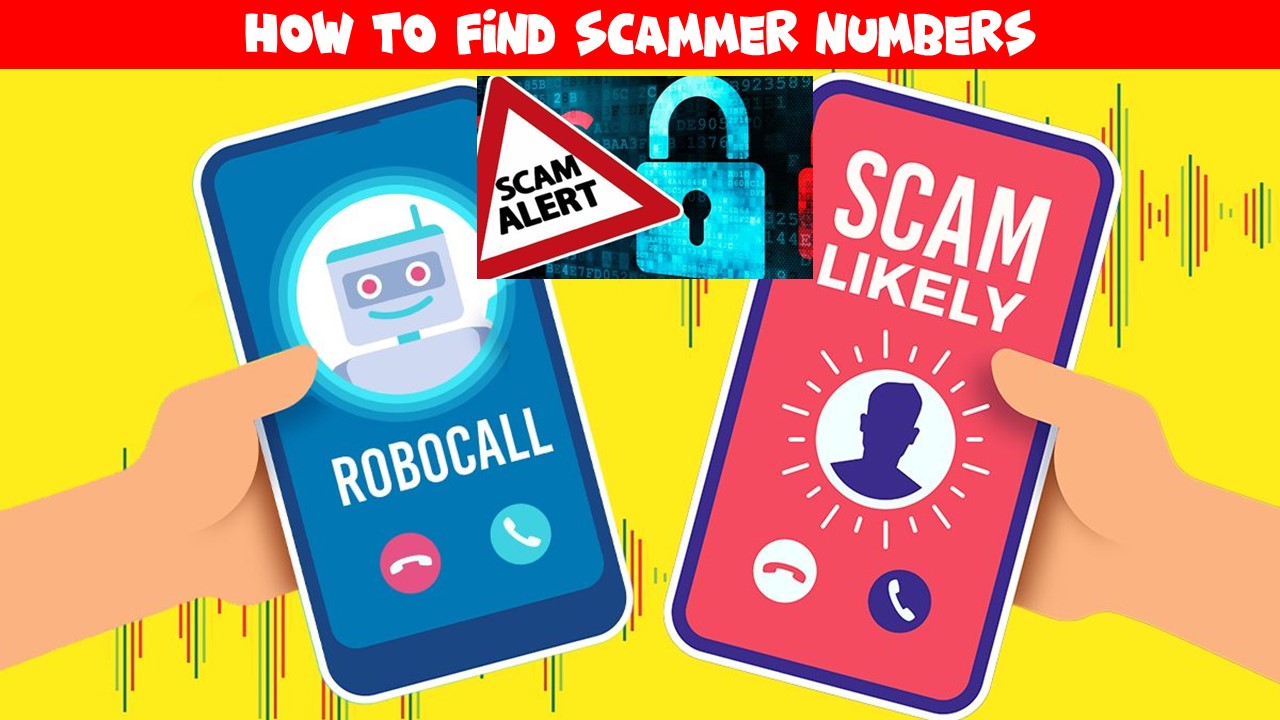Discover effective strategies how to find scammer numbers, understand their tactics, and protect yourself from phone scams. Equip yourself with knowledge and stay a step ahead.
Introduction: The Rise of Phone Scams
Ever wondered why your phone rings with unknown numbers claiming to be officials or offering too-good-to-be-true deals? Welcome to the age of phone scams! With technological advances, scammers have found innovative ways to deceive innocent individuals.
The Allure of Scammer Calls
Why do scammers use phone calls?
It’s simple: phone calls are personal. Imagine you receive an email from an unknown source, versus a call. You’re more likely to trust the latter, right? That’s the scammer’s bet.
Types of common scam calls
There’s the IRS scam where they threaten legal action, the lottery scam promising millions, and the tech-support scam offering “help.” Recognize any?
Key Red Flags of Scam Calls
Pressure to act immediately
“Hurry, or you’ll miss out!” Sounds familiar? Scammers play on urgency.
Asking for personal or financial information
Banks, officials, or any genuine entity won’t ask for sensitive data over a call. Why would they, when they have it already?
Unrecognizable or suspicious numbers
A number from a foreign country, when you haven’t interacted internationally? Red flag!
Reliable Methods to Find Scammer Numbers
Reverse phone lookup services
Remember Sherlock Holmes? This is your detective tool. Enter the number, and unveil its secrets.
Community forums and feedback
There’s strength in numbers. Sites like ‘WhoCalledMe’ gather collective experiences to spot scam numbers.
Reporting and regulatory websites
FTC’s official website or your country’s equivalent will have a list of reported scam numbers.
Protecting Yourself from Scammers
Do’s and Don’ts when suspecting a scam call
Do: Hang up. Don’t: Share information.
Setting up phone security features
From blocking unknown numbers to setting up spam alerts, make your phone a fortress.
Educating and Informing Others
Share information within your community
Tell a friend, and they’ll tell a friend. Soon, the whole neighborhood is alert!
Report scams to the authorities
Make scammers’ lives hard. Report, report, report!
The Future of Scam Calls: What to Expect
With AI on the rise, expect more sophisticated scams. Stay vigilant, always!
Read Also: Unlocking the Secrets of the 833 Area Code
Also: How to block spam calls
Strategies How to Find Scammer Numbers
Finding scammer numbers is crucial for personal protection and for reporting suspicious activity to the appropriate authorities. Here’s a guide to help you identify potential scammer numbers:
Check Online Directories: Websites like ‘WhoCallsMe’, ‘800notes’, or ‘Scamcallfighters’ allow users to report and look up suspicious phone numbers.
Reverse Phone Lookup: Using search engines or dedicated services, you can enter the suspicious phone number and check if others have reported it as a scam.
Check Your Voicemails and Texts: Scammers often leave vague and urgent messages. If you receive a suspicious message from an unknown number, it may be a scam.
Watch for Common Scam Indicators:
- Robocalls or pre-recorded messages.
- Calls from numbers that appear similar to yours.
- Unknown international numbers, especially if you don’t have international contacts.
- Numbers that repeatedly call and hang up without leaving a message.
Use Phone Carrier Services: Some carriers offer spam protection services that identify suspicious numbers when they call you.
Utilize Third-party Apps: Apps like ‘Hiya’, ‘Truecaller’, or ‘Nomorobo’ can help identify and block potential scam calls.
Search Social Media: Some victims of scams might post the scammer’s number on social media as a warning to others.
Local News Reports: Sometimes local news stations will report on ongoing scams in the area, including the numbers the scammers are using.
Ask Around: If you’re uncertain about a call you received, ask friends or family if they’ve received calls from the same number or a similar sounding offer.
Government Resources
Some countries have dedicated agencies where scam numbers are reported and compiled. For instance, in the U.S., the Federal Trade Commission (FTC) has a site for reporting and checking scam numbers.
If you believe you’ve identified a scammer’s number:
- Don’t Engage: Avoid answering or, if you do, hang up immediately if it seems suspicious.
- Report It: Report the number to your local authorities and any applicable online directories or websites.
- Block The Number: Most smartphones and carriers allow you to block specific numbers.
FAQs
- How can I report a scam call?
- Usually, through your country’s telecommunications regulatory website or the police.
- Do scammers only target the elderly?
- No, they target anyone. It’s a misconception that only the elderly are vulnerable.
- I gave out personal information. What do I do now?
- Contact your bank or any concerned authority immediately and consider changing your passwords.
- Can scam calls hack my phone?
- Not through the call itself, but avoid clicking on any sent links.
- How do scam calls get my number?
- They use random number generators, data breaches, or even purchase lists.
Remember, if you’re ever in doubt, it’s better to be safe and avoid sharing any personal information over the phone. Always verify the authenticity of any unsolicited calls, especially those that ask for personal or financial information.
Conclusion
In today’s digital age, with the influx of technology and communication methods, scam calls have unfortunately become a ubiquitous menace. While technology has eased our lives, it has also paved the way for malevolent actors to exploit unsuspecting individuals. Identifying and thwarting these malicious intents requires a combined effort of awareness, education, and utilizing available tools. Being informed, sharing knowledge, and staying vigilant are our strongest defenses against the ever-evolving tactics of scammers. Remember, in the battle against scam calls, your first line of defense is always awareness.

